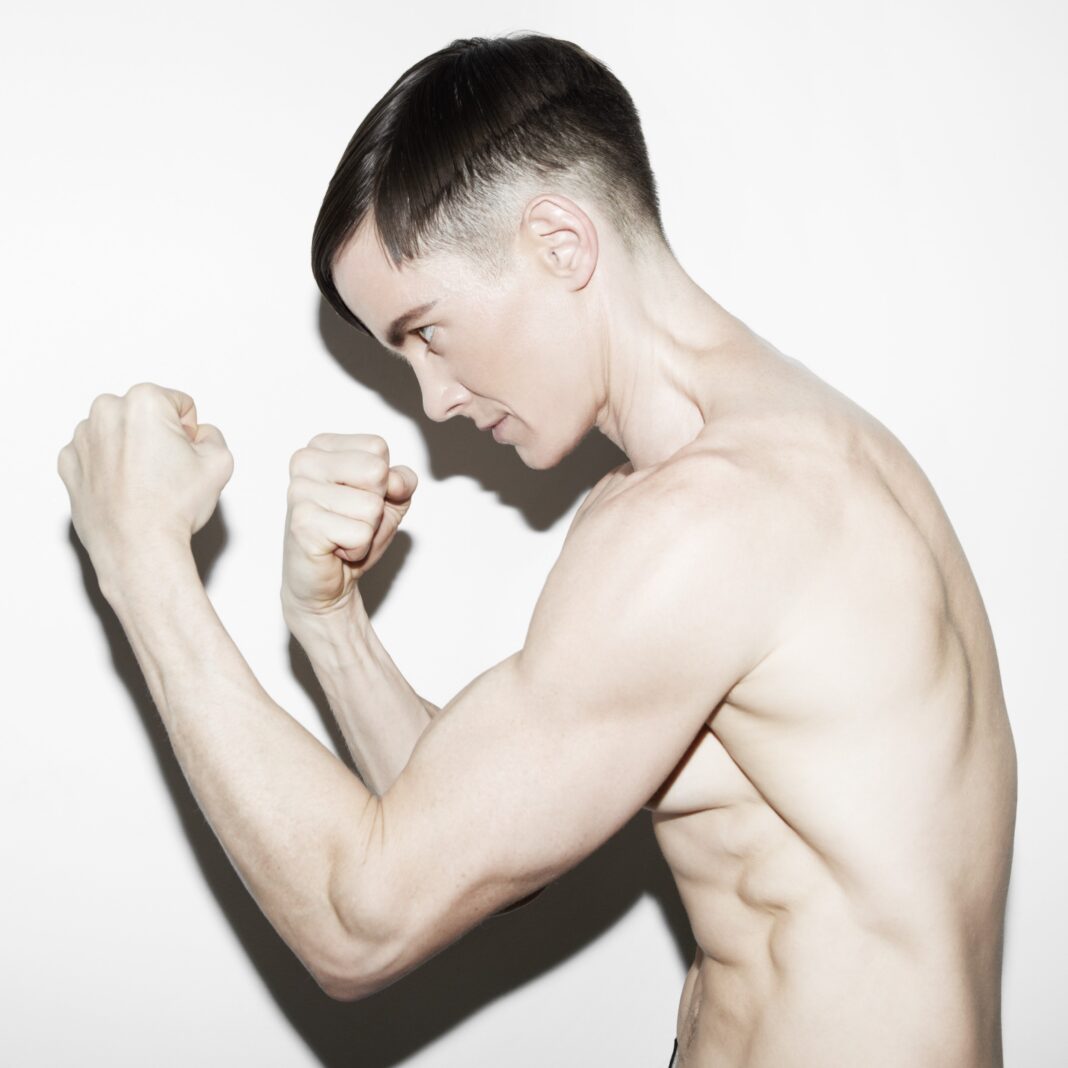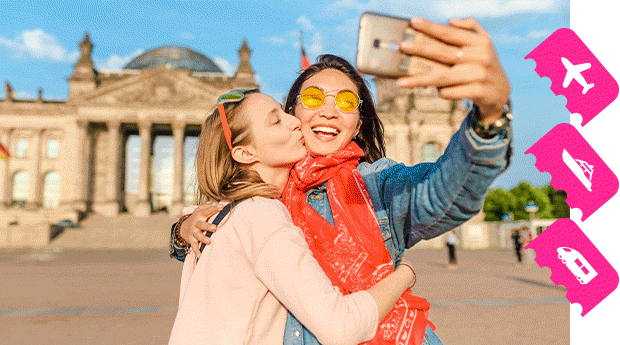Sometimes an artist goes through an especially prolific period. In the last 12 months, the work of L.A.-based transmasculine artist Cassils has been part of exhibitions from Toronto and Saratoga, California, to London, U.K.
A bodybuilder and personal trainer, as well as a performer and creator, their own body is often the material of their work, drawing on images from gay male culture, as well as the world of bodybuilding to use the body as a “social sculpture.”
Yet it’s never solely about surface image. Their two-ton sculpture “Resilience of the 20%,” a bronze cast from the bashed clay remnants of another work, references a 2012 statistic about the increased murder of trans people worldwide. There’s an interest in history and social change underlying everything Cassils does.
Being a hot artistic commodity these days, Cassils gets invited to a lot of places, so we asked them about the places that have made a deep impression on them. Here are their assessments, in their own words.
Skopje, the capital of North Macedonia
I was invited to an LGBTQ+ festival there after the fall of a right-wing government in 2017. The Minister of Culture came to my exhibition because it was the first queer content that had been allowed to be shown in the country in years. Their LGBTQ+ centre had been firebombed weeks beforehand. They didn’t have the budget to ship in sculptures so we did an entire work about violence using just sound and images, the architecture of the available spaces. I felt incredibly supported because I was invited by my community and its allies. You know, I’ve toured work and shown in places like Tehran, Iran, where all of my work has been censored at customs—with the exception of the works where I set my body on fire. These sorts of ideas around acceptance of the body, of gender, they all change from culture to culture, so I try to be aware of that when I’m producing work.
North Macedonia snapshot
- Homosexuality was legalized in 1996 as a condition for becoming a member of the Council of Europe. Same-sex couples are not recognized and marriage is defined as a union between a man and a woman.
- Skopje’s first Pride took place in 2019. President Stevo Pendarovski marched in the 2021 parade. The Pride dates for 2023 were not announced at press time.
- Komitet (Dame Gruev 12 Beko, Local 21, Skopje) is an LGBTQ+ friendly restaurant and performance space in the capital.
Perth, Western Australia
A really incredible place where nobody really goes. It’s a community of coal miners. Rugged, unfettered landscape, you know, kind of the Australian equivalent of the Canadian wilderness. But at the same time, you learn about the genocides of Indigenous people in the area, tribes that no longer exist. You can feel that. I went to this town called Yallingup in the Margaret River region [about 256 kilometres south of Perth]. It’s wine country, but off-the-grid. In Australia you can really feel an Apartheid culture with the First Nations people who live there, so that can be problematic. But I have Indigenous artist friends who live there. I was able to spend some time in nature, which is overwhelming. Undeveloped land for miles. There are snakes that sleep on the beach, killer octopuses. There were so many swaths of beach along that coastline that had very little presence of humanity.
Western Australia snapshot
- The Western Australian law decriminalizing private sexual acts between two people of the same sex came into effect in 1990, but the age of consent for homosexual acts versus heterosexual acts was not equalized in the state until 2002. Australia legalized same-sex marriage nationally in 2017.
- Pride WA, founded in 1989, hosts Pride celebrations in Perth and other parts of the state, including an annual LGBTIQ arts, culture and community festival. The next Pride is scheduled for November 3 to 27, 2023.
- In 2021, the City of Perth adopted a three-year plan to increase the visibility, social inclusion and health and well-being of the LGBTQIA+ community.
Dolomites, Italy
A lot of times when I travel, I’m tagging it on top of gigs I’ve been paid for by institutions. I had had a gig in Austria and I’d been thinking about doing some hiking in the Alps. But I was finding it easier to find information on the Italian Alps [which include the Dolomite mountains] than on the Austrian side, so I went there. The mountains are this incredible mix of being a UNESCO World Heritage site, which hasn’t allowed any building to occur, so any structures there have been there for hundreds of years, passed down within families, being ensconced in ancestral traditions. We hired a lesbian hiking enthusiast who put together a multiple-day journey for us, set a path, gave us a map. They also gave us a cell phone to track our journey as we hiked, you know, 10 miles one day, another 10 the next. We stayed in basic mountain accommodations, these gorgeous old buildings. We’d be eating someone’s grandmother’s ravioli looking at these incredible peaks that are light pink, mauve, turquoise. Initially, the Dolomites were a corral seabed, so you have these soft corral colours juxtaposed against the sharp grandiosity of the structures and the mountains. It’s surprisingly beautiful.
Dolomites snapshot
- Though Cassils couldn’t remember the women they booked their hiking tour with, Gaily Tour, an established Italian tour operator, offers an eight-day LGBTQ+ friendly tour of Northern Italy that includes the Dolomites.
- With no same-sex marriage or ban on conversion therapy ban, Italy has fallen behind many of its rich European peers in recognizing the rights of LGBTQ+ people, ranking below North Macedonia and Hungary in some categories. It recognized same-sex unions nationally in 2016, but not adoption rights for same-sex couples. This spring Italy’s right-wing government ordered Milan’s city council to stop registering same-sex parent’s children.
- Dolomiti Pride takes place in Trento, a city of about 117,000, in June 3, 2023.
This interview has been edited for length and clarity.


